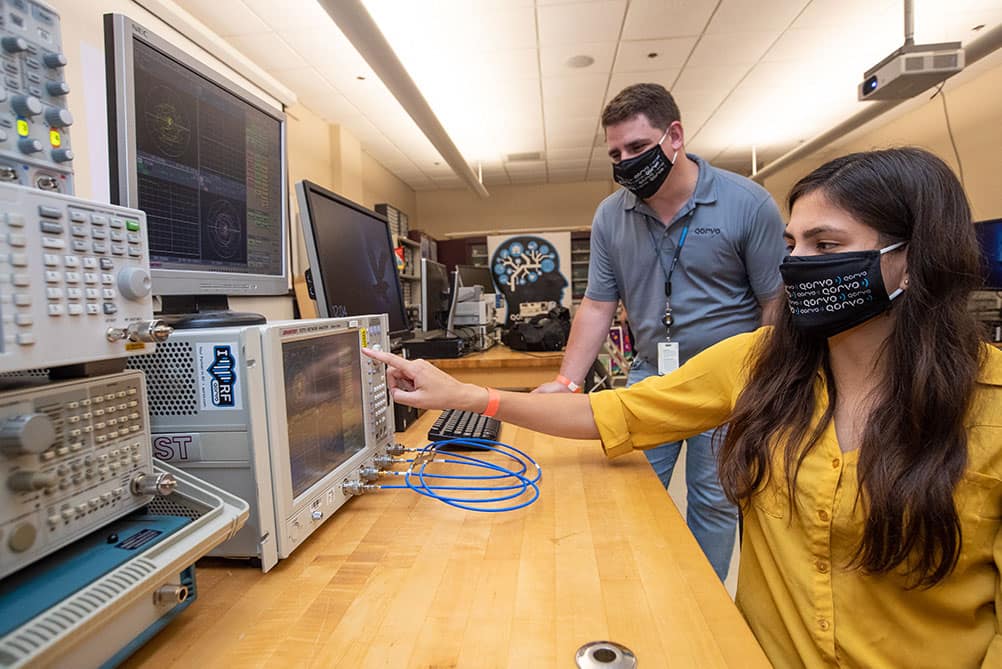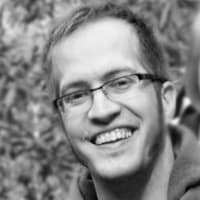Qorvo Partners With College RF Lab to Benefit Students and Industry

For Alberto Canabal, director of design engineering at Qorvo, supporting student labs at Embry-Riddle makes good business sense. Through his connection with Assistant Professor Eduardo Rojas – who interned at Qorvo before choosing a career in academics – Canabal has been working to strengthen the company’s relationship with Embry-Riddle, for the benefit of students and the semiconductor manufacturing industry.
Qorvo recently donated a batch of measurement instruments that will greatly expand the capability of the Radar and Microwaves (RF) Teaching Lab at Embry-Riddle’s Daytona Beach Campus, Rojas says.
“In the lab, students go from design, to simulation, to fabrication, and to measurement,” Rojas says. “So the measurements are both key for closing the learning cycle, but also important because they would extensively use these devices in the industry.”
The gift from semiconductor-chip maker Qorvo, includes multiple vector network analyzers (VNA), power meters, and oscilloscopes.
The costly VNAs are the critical pieces to growing the instruction potential of the lab, says Seng Loon Yu. Yu is a doctoral student, now in his third semester as instructor for the lab, and an intern at Qorvo.
“The last few semesters we only had one VNA, which is a very important tool in RF. Students had to take turns using it. Now each station will have a VNA, so students will be able to learn more. We will be able to adjust the lab schedule to accommodate more activities for them to engage in,” Yu says.
One of these students is Sabrina Yepez, an electrical engineering major, who has been helping Rojas with his research. “I didn’t know how important RF was until I came to this lab. With Dr. Rojas’ guidance, I found a lot of companies that really look for RF experience. It opened my eyes to how important this will be to my career,” Yepez says.
The benefit is clear to Dustin Heil (’10, ’12), an engineering technician at Qorvo. When he was hired at the company six years ago, a colleague told him they didn’t usually hire Embry-Riddle students because the school didn’t yet have an RF track. “This is going to be a huge step forward for the university, and it’s going to be fantastic for the RF industry,” Heil says.
The main struggle for Canabal, and the reason he says Qorvo is growing its involvement with Embry-Riddle, is finding qualified people to hire. “It’s very difficult to find people in the RF industry in general,” he says. “As you get into RF and microwaves, it starts to be more like applied physics. The requirements are different; the math is a little more complicated.”
For their design team, Canabal says a master’s degree is a minimum criteria, and even so, getting recruits up to speed is a big investment. He says it can take a year of training before a new hire can be productive on their own. He hopes expanding the RF lab will reduce the time it takes to onboard Embry-Riddle graduates.
Canabal says the equipment donation has symbiotic benefits for students, Embry-Riddle and Qorvo. “It’s a win for the department because their students will find employment right away. It’s great for the students because they get this visibility that most people don’t. And it’s great for us because then hiring is much easier.”

 Alan Marcos Pinto Cesar
Alan Marcos Pinto Cesar